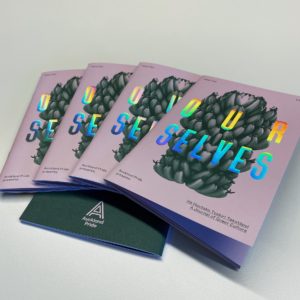I am all set to move into full-time private practice and will be available to see people for private therapy at WEST Community Hub in Henderson on Mondays from March, with shift to Tuesdays from April on. Find out more about my availability and making a referral here.
I will continue to see people online and from Changing Minds in Mount Eden, but will move to Wednesdays and Thursdays so Fridays can become a day for groups. I have found a most excellent peer support worker with a background in poetry and performance like me, and we are getting ready to run some groups together later this year. More info soon.
I have truly loved my first six months of part-time private practice at Changing Minds. There is something different about working from a service-user led space with such a long history of systemic advocacy in New Zealand. As someone who once participated in Changing Minds’ monthly Consumer Forums, and later served as a trustee on the board, for me it feels rather a lot like coming home each time I walk through the door. I like the way we have a lounge room instead of a waiting room, and the way the walls are covered in framed stories of recovery from real people who have been there before.
Back in my days as a full-time activist, when I was working with Taimi Allan on the Like Minds Like Mine team at Mind and Body Consultants, we often used to weave fantasies about a fictional ‘service-user led clinical service’ and when I left that job for my clinical training, we promised ourselves ‘one day…’ Our little partnership at Changing Minds feels rather a lot like the first step in our own tiny little revolution in that way.
I have searched long and hard for a similar service-user led space to partner with in West Auckland, but it turns out there is nowhere else quite like Changing Minds. I was very excited to discover the peer-led space Te Ata in Henderson (if you haven’t been yet, do go check it out, it’s pretty awesome). Unfortunately, they didn’t yet have a room that was suitable for therapy and it was a bit far from public transport options. So I have opted to use the therapy rooms at WEST Community Hub for the time-being. It’s not a service-user led space or quite as homey, even though it’s also in a repurposed house. But it is a community-led space, so it’s similar enough to my kaupapa to fit. Plus it is super close to bus-stops, the train station and lots of parking – and just down the road from Te Ata.
Here’s to the next chapter.
Take care out there everyone,
Miriam








